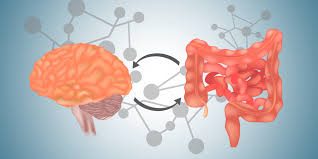When it comes to weight loss, most people often focus on diet and exercise. They meticulously count calories, track macros, and spend hours at the gym.
While these strategies are essential components of a healthy lifestyle, they often overlook a crucial factor that can significantly influence their success: hormones.

Hormones are powerful chemical messengers in the body that regulate countless physiological processes, including metabolism, appetite, fat storage, and energy expenditure. If these hormones are out of balance, even the most disciplined diet and exercise regimen may not yield the desired results.
Given the complexity of hormonal regulation, a one-size-fits-all approach to weight loss is often ineffective. Instead, a tailored strategy that addresses hormonal health is crucial.
So let us explore the different hormones associated with weight management and provide actionable strategies for balancing them. Understanding them would be a game-changer in your sustainable weight loss journey.
Insulin

Insulin is the hormone that everyone is nowadays aware of. It is an anabolic hormone, meaning these hormones work by helping your body turn simple substances into more complex ones that are needed for growth and repair. Insulin is produced by the pancreas and regulates blood sugar levels by facilitating the uptake of glucose into cells for energy. But when there is an imbalance, this excess insulin can lead to fat storage.
Management: Reduce intake of refined sugars and carbohydrates. Opt for whole grains, vegetables, and lean proteins. Regular exercise also improves insulin sensitivity.
Cortisol

Known as the “stress hormone,” cortisol is produced by the adrenal glands and is involved in the stress response. Elevated cortisol levels cause the flight-or-fight situation.
Chronic stress can lead to high cortisol levels, which stimulates your fat and carbohydrate metabolism, creating a surge of energy in your body.
While this process is essential for survival situations, it also increases your appetite. Additionally, elevated cortisol levels can cause cravings for sweet, fatty, and salty foods.
Management:- Manage stress through mindfulness practices, such as meditation and yoga. Regular physical activity produces endorphins (happy hormones) that alleviate stress and adequate sleep also helps regulate cortisol levels.
Leptin

Leptin is often referred to as the “satiety hormone” because of its crucial role in regulating hunger and energy balance.
Essentially, leptin helps control appetite and energy expenditure, and when you eat, fat cells release leptin, which signals the brain to reduce appetite and increase energy use.
Low leptin levels boost hunger and lower energy expenditure, maintaining energy balance. But imbalance leads to a condition called “Leptin Resistance” where the brain becomes resistant to leptin, which fails to recognize that the body has sufficient fat stores. As a result, it continues to signal hunger, leading to overeating and further weight gain.
Management:- To improve leptin sensitivity, prioritize sleep, manage stress, and include anti-inflammatory foods like fatty fish, nuts, fruits, and leafy greens in your diet.
Ghrelin

Ghrelin, often referred to as the “hunger hormone,” is a peptide hormone primarily produced in the stomach and small intestine. Its main role is to stimulate appetite and promote food intake.
Ghrelin levels typically rise before meals and decrease after eating, playing a crucial role in regulating meal initiation and energy balance. Individuals with higher ghrelin levels may experience stronger feelings of hunger and tend to overeat, leading to weight gain over time. Additionally, ghrelin levels can be influenced by factors such as sleep deprivation, stress, and dietary choices.
Management:- Eating protein-rich foods and maintaining a regular eating schedule can help keep ghrelin levels stable. Adequate sleep is also crucial, as sleep deprivation increases ghrelin levels.
Thyroid hormones
Thyroid hormones, including thyroxine (T4) and triiodothyronine (T3), are produced by the thyroid gland and play a crucial role in regulating metabolism.
These hormones influence almost every physiological process in the body, including energy production, temperature regulation, heart rate, and metabolism of fats, proteins, and carbohydrates. As such, thyroid function is closely linked to weight regulation, and imbalances in thyroid hormones can significantly impact metabolic rate and body weight.
Management:- Ensure adequate intake of iodine, selenium, and zinc, including eggs, nuts, leafy greens, and whole foods which are essential for thyroid function. Regular exercise and managing stress also support thyroid health.
References
- https://pubmed.ncbi.nlm.nih.gov/27345309/
- https://health.clevelandclinic.org/stress-and-weight-gain
- https://pubmed.ncbi.nlm.nih.gov/17924864/#:~:text=Insulin%20therapy%20or%20intensification%20of,adversely%20affecting%20cardiovascular%20risk%20profile.
- https://www.medicalnewstoday.com/articles/325328
- https://www.diabetes.org.uk/guide-to-diabetes/managing-your-diabetes/treating-your-diabetes/insulin/side-effects
- https://www.ncbi.nlm.nih.gov/pmc/articles/PMC5756630/
- https://www.ncbi.nlm.nih.gov/pmc/articles/PMC1774616/
- https://pubmed.ncbi.nlm.nih.gov/21460597/#:~:text=Leptin%20circulates%20in%20blood%20and,appetite%20until%20weight%20is%20lost.
- https://www.ncbi.nlm.nih.gov/pmc/articles/PMC8167040/
- https://diabetesjournals.org/diabetes/article-abstract/73/2/197/153835/Leptin-Reduction-as-a-Required-Component-for?redirectedFrom=fulltext
- https://www.ncbi.nlm.nih.gov/pmc/articles/PMC4911848/
- https://www.thyroid.org/thyroid-and-weight/
- https://www.btf-thyroid.org/thyroid-and-weight-the-science
- https://www.ncbi.nlm.nih.gov/pmc/articles/PMC5461198/




